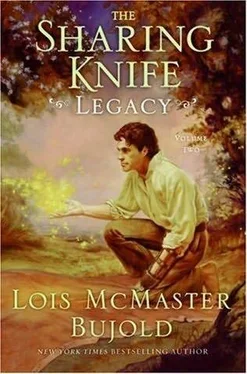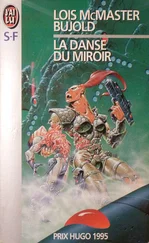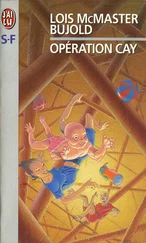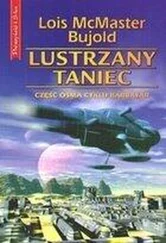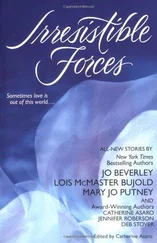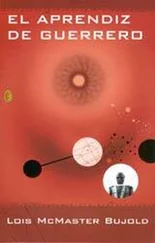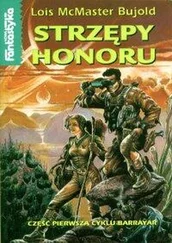Fawn looked up at Dar. “I’ll have that back, now,” she said sturdily. She held out her hand.
Dar gave Dag an inquiring look, found no support, and reluctantly handed the sheathed knife back to Fawn.
“A lot of knives never get used,” said Dag, in a would-be casual tone. “I see no special need of rushing to dispose of this one. If it serves no purpose intact, it serves no more destroyed.”
Dar grimaced. “What will you keep it for, then? A wall decoration? A gruesome memento of your little adventure?”
Dag smiled down at Fawn; she wondered what her own face looked like just now. It felt cold. He said, “It had one use, leastways. It brought us together.”
“All the more reason to break it,” said Dar grimly.
Fawn thought back on Dag’s offer of the same act, way back at the Horsefords’ farmhouse. We could have saved a lot of steps. How could two such apparently identical suggestions feel like utter opposites? Trust and untrust. She hoped she could get Dag alone soon, and ask him whether he accepted his brother’s judgment, or only some part of it, or none, or if they should seek another maker. There was no clue in his face. She hid the knife away again in her shirt.
Dag stood and stretched, rolling his shoulders. “It’s about dinnertime, I expect. You want to come watch, Dar, or hide out here?”
Fawn began to wish she and Dag could hide out here. Well—she eyed the bones hung from the eaves swinging in the freshening breeze—maybe not just here. But somewhere.
“Oh, I’ll come,” said Dar, rising to collect his carving knife and the finished bowls and take them inside. “Might as well get it over with.”
“Optimist,” said Dag, stepping aside for him as he trod up the steps.
Fawn caught a glimpse of a tidy workroom, a very orderly bench with carving tools hung above it, and a small fieldstone fireplace in the wall opposite the door. Dar came back out fastening his shirt, entirely insensible of the ease with which his buttons cooperated with his fingers, latched the door, and passed efficiently around the shack closing the shutters.
The green light of the woods was growing somber as scudding dark clouds from the northwest filled the sky above. The staccato pop of falling nuts sounded like Dag’s joints on a bad morning. Fawn clung to Dag’s left arm as they started back up the path. His muscles were tight. She lengthened her steps to match his, and was surprised to find she didn’t have to lengthen them very much.
B eyond the clearing with the two tent-cabins, the gray of the lake was darkening, waves starting to spin off white tails of spume. Fawn could hear them slapping the shore beneath the nearby bank, where a stand of cattails bent and hissed in the rising wind. Only a single narrow boat was still in view, with two men paddling like mad for a farther shore. In the slate-colored air to the north, dazzling forks of lightning snaked from sky to earth, their thunder still laggard in arriving. The pearl of the sun, sinking toward Mare Island, disappeared behind a darker cloud even as she watched, turning the light gloomy.
Under the awning of the cabin on the right, a thin, straight, rigid figure in a skirt stood beside their piles of saddles and gear, watching anxiously up the path they were descending. Omba in her riding trousers lurked in the shadows behind, leaning against a support post with her arms crossed.
“What are you going to say?” Fawn whispered urgently to Dag.
“Depends.”
“On what?”
“On what she says. If the rumors have run ahead of me, she’ll have had time to get over being happy I’m alive and move on to other concerns. Depending on who all ’sides Omba got to her with the rumors, she could be pretty well stirred up.”
“You left our gear in plain sight—she’d have to know you’re back even without Omba.”
“There is that.”
Did he even have a plan? Fawn was beginning to wonder.
As they neared, the woman in the skirt stood bolt upright. Her hands twitched out once, then she planted them firmly on her hips. Cumbia Redwing wore her silvery-gray hair pulled back in the simple mourning knot. Her skin had less of the burnished copper in it than Dag’s—darker, more leathery, more worn—if striking in contrast with the hair. Fawn might have guessed her age as a healthy seventy, though she knew she was two decades beyond that. Her eyes were the clear tea color, narrowing under pinched-in streaks of silver brows as they swept over Fawn; in a better light, Fawn suspected they would be bright gold like Dag’s.
As they came up to the edge of the awning, Cumbia thrust out her chin, and snapped, “Dag Redwing Hickory, I’m speechless!”
Behind them, Dar muttered, “Bet not.” Dag’s brows barely twitched acknowledgment of this.
Proving Dar right, she went on, “Whatever you patrollers do out on the road, the rule is, you don’t bring it home. You can’t be bringing your farmer whore into my tent.”
As if he hadn’t heard her, Dag pulled the shrinking Fawn forward, and said, “Mama, this is my wife, Fawn Bluefield.”
“How de’ do, ma’am.” Fawn dipped her knees, frantically searching amongst the hundred rehearsed speeches in her mind for something to follow. She hadn’t imagined doing this in a thunderstorm. She hadn’t imagined most of this.
Dag forestalled her. Now standing behind her, he slid his hook, carefully turned downward, under her left wrist and elevated it. “See? Wife.” He shrugged his left shoulder to display his own marriage cord.
Cumbia’s eyes widened in horror. “You can’t have—” With a hic-cough of breath, she choked out, “Cut those things.”
“No, ma’am,” said Dag in a weirdly affable tone. Flying, Fawn thought. Off in that other place he went to when things turned deadly sour, when action moved too fast for thought, and he turned it all over to some other part of himself that could keep up. Or not…
“Dag, if you do not burn those abominations and take that girl right back where you found her, you are never entering my tent again.” Had Cumbia been rehearsing too? Coached by excited rumormongers? There seemed something deeply awkward about her, as if her mouth and eyes were trying to say two different things. Dag might know with his groundsense, if he hadn’t obviously closed it down as hard as a hickory shell.
Dag smiled, or at any rate, his mouth curved sunnily, though his eyes stayed tight, making him look, for a moment, oddly like his mother. “Very good, ma’am.” He turned to his stunned listeners. “Omba, Dar, good to see you again. Fawn, get your bags and bedroll. We’ll send someone back for the saddles tomorrow. Omba, if she throws them out in the rain, could you put them under cover for me?”
Omba, staring wide-eyed, nodded.
Wait, what? “But Dag—”
He bent and hooked up Fawn’s saddlebags and handed them to her, then hooked his own over his shoulder. She clutched the heavy load awkwardly to her chest as he put his arm around her back and turned her toward the clearing. The first big raindrops spattered down, batting the hickory leaves and hitting the dirt with audible plops.
“But Dag, no one—she hasn’t—I haven’t—”
Reversing herself abruptly, Cumbia said, “Dag, you can’t go out there now, it’s coming on to storm!”
“Come along, Spark.” He hustled her out.
A few fat drops plunked onto the top of her head like hard finger-taps, soaking cold down to her scalp. “But Dag, she’s not hardly—I didn’t even get a chance to—” Fawn turned back to dip her knees again and call a desperate, “Nice to meet you, ma’am!” over her shoulder.
“Where are you going?” cried Cumbia, echoing Fawn’s thoughts exactly. “Come back out of the rain, you fool!”
Читать дальше
